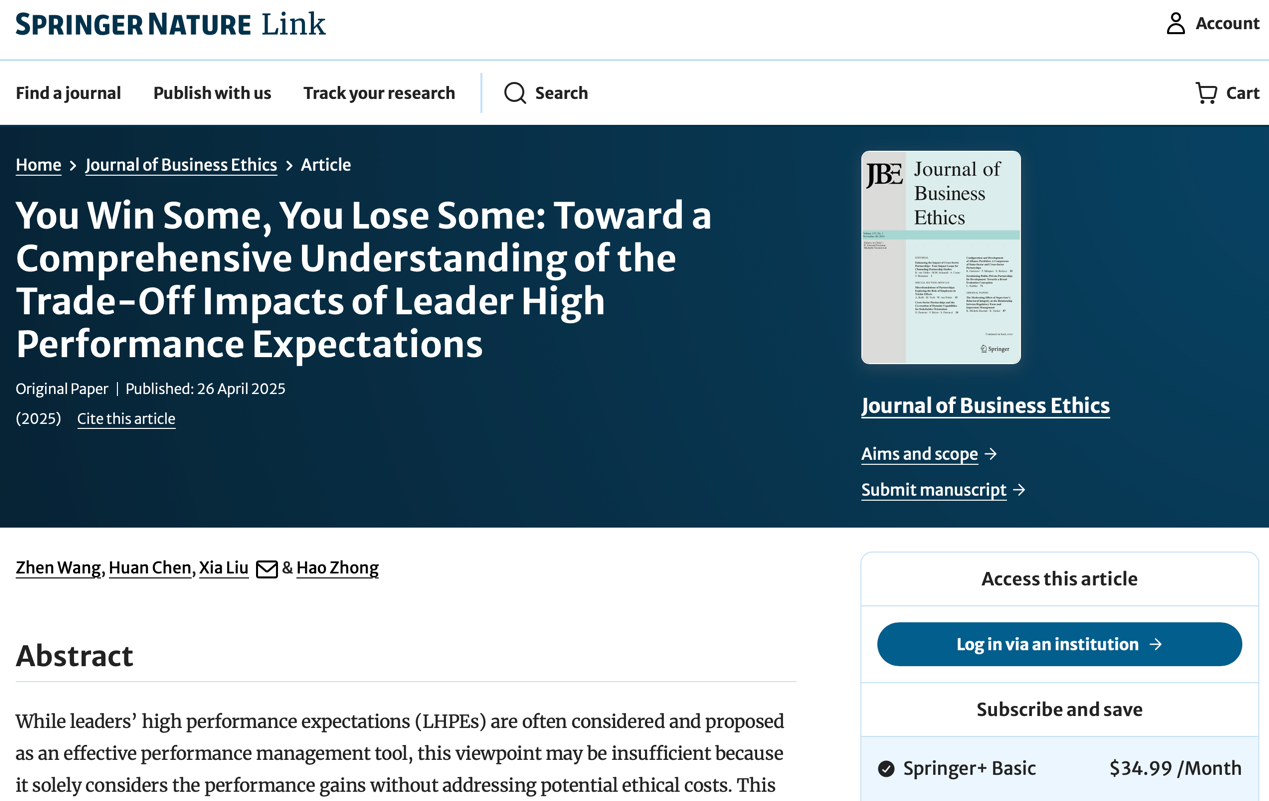Recently, the paper “You Win Some, You Lose Some: Toward a Comprehensive Understanding of the Trade-Off Impacts of Leader High Performance”, led by Prof. Zhen Wang of our university, was accepted and published online by Journal of Business Ethics. Expectations” was accepted by Journal of Business Ethics and published online. This paper is the 10th research result published by Prof. Zhen Wang as a faculty member of our school in FT50 journals, and the previous results have been published in Journal of Applied Psychology (JAP), Organizational Behavior and Human Decision Processes (OBHDP), Human Relations (HRC), and Journal of Business Ethics (JBE), and the Journal of Business Ethics (JBE). (JAP), Organizational Behavior and Human Decision Processes (OBHDP), Human Relations (HR), and Human Resource Management (HRM).
The paper focuses on leaders' high performance expectations of their subordinates. For the first time, the research team developed a theoretical construction and empirical test based on the Goal Masking Theory. The study found that high performance expectations are a “double-edged sword”: on the one hand, it encourages employees to prioritize core performance goals, which can enhance their performance; on the other hand, such goal prioritization can also lead to negative ethical effects, including an increase in prohibited unethical behaviors (e.g., performance-enhancing violations) and a decrease in positive ethical behaviors (e.g., civic behaviors outside of job responsibilities that benefit the organization and colleagues). This dual effect is particularly significant in work teams with a highly competitive atmosphere. The findings challenge the previous dominant view that only emphasizes the positive effects of high performance expectations of leaders, and emphasize that when managers use high performance goals as motivators, they must be careful to assess the potential ethical risks while promoting performance enhancement, so as to achieve a balance between the scientific and ethical aspects of the incentives.
